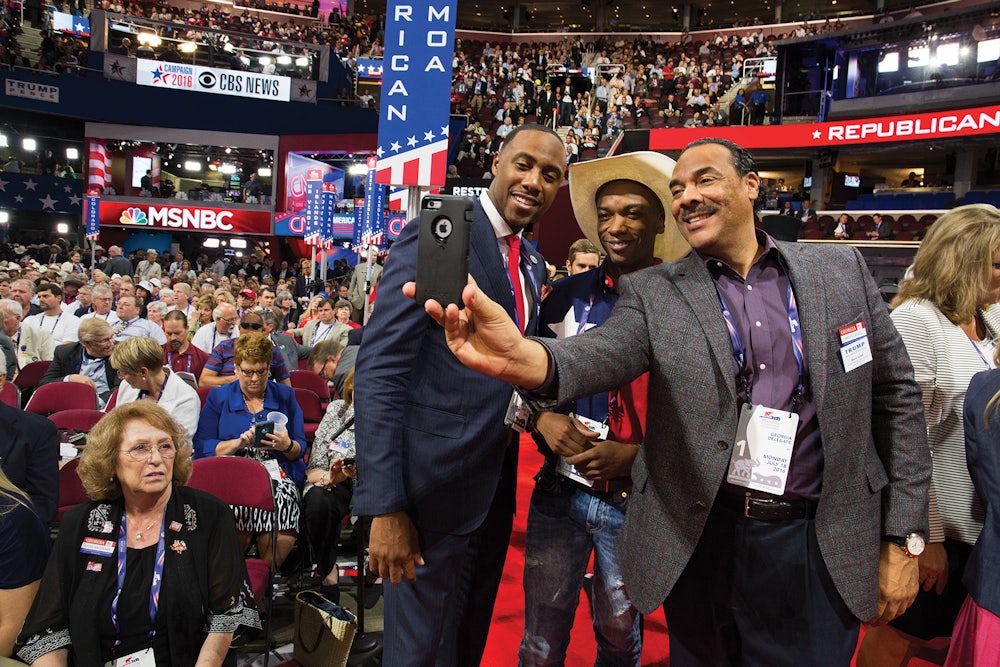To say that Donald Trump enjoys wide support among black voters, even those in his own party, would be an overstatement of truly Trumpian proportions. An estimated 18 black delegates attended the Republican National Convention in Cleveland this year—less than one percent of all RNC delegates, and only a third of the number who turned out to support Mitt Romney in 2012. Even among wealthy white scions, it seems, Trump has a race problem.
The black delegates who showed up at the convention are acutely aware of their isolation, from both their own communities and their fellow Republicans. “I’m a unicorn,” laughs Henry Childs II, head of the Texas Federation of African American Republicans. Supporting the GOP, he says, has made him “the most hated man in America”—unappreciated by Republicans and held in suspicion by Democrats.
So why do it? What drives these men and women to back a candidate who delights in playing the racial provocateur, who has campaigned with a rollicking mix of barking xenophobia and unabashed nativism surpassed only by George Wallace?
Many, like Shirley Husar of California, combine a fiery belief in black self-reliance with a contempt for what they see as the ambition-dulling power of the welfare state. Others, like Bruce LeVell of Georgia, put their faith in the leveling force of business. And almost all see their role in the GOP as a sort of inside job, pushing white Republicans to better understand and address the needs of black Americans. To put it simply, they want a seat at the table if Trump wins.
Whatever their motivations and mind-sets, they are far from incognizant of the wages of their skin. They have witnessed the racism that Barack Obama has faced in office, and they understand the harsh realities endured by black America, including police violence and mass incarceration. (Camilla Moore, an alternate delegate from Georgia, speaks movingly of giving her now-grown sons “the talk” about how to interact with police.) But they dismiss any notion that Trump will make things worse. They focus instead on what they see as his business expertise, buttressed by the ostentatious display of wealth that has made his name synonymous with success in dozens of rap songs. Trump, they believe, will bring jobs to urban America—in part, through some unexplained alchemy, by barring the border to Mexican farmworkers.
They believe that Trump can attract black voters—particularly those who have soured on Obama’s failure to end high unemployment and social inequality. In a strange sense, their support for Trump is a sign of the desperation and marginalization experienced by so many black Americans. If embracing the uncomfortable is the price of inclusion, it is one the RNC’s black delegates are willing to pay in full.
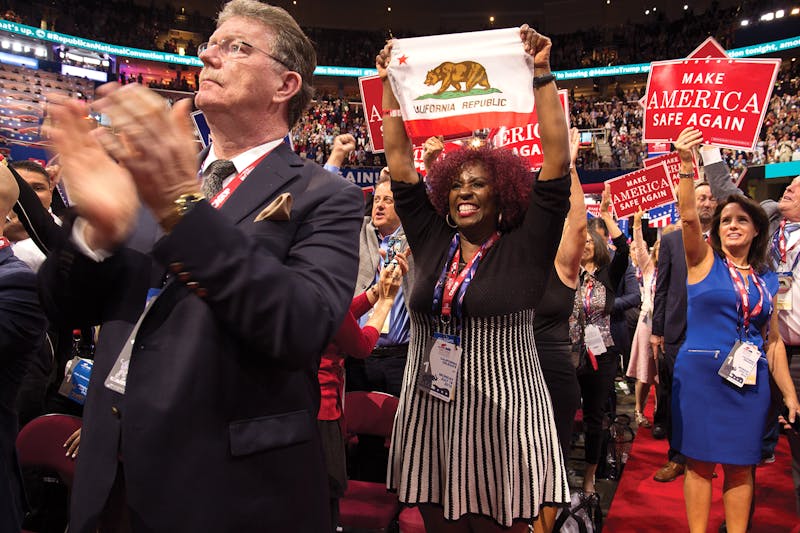
Shirley Husar
Los Angeles, California
An entrepreneur and mother of three, Husar grew disillusioned with Barack Obama after voting for him in 2008. “What’s he done for black people?” she says. “Black people still get shot in the back and are still homeless and still can’t get jobs. It’s a mess.” She doesn’t feel Trump has been “harsh” on people of color—“other than we don’t need illegal immigrants”—and blames Hillary Clinton for backing the mass incarceration of African Americans. Husar believes Trump’s business savvy will make him an “amazing” president: “He’s not a politician. He knows how to build things, how to build opportunity.”
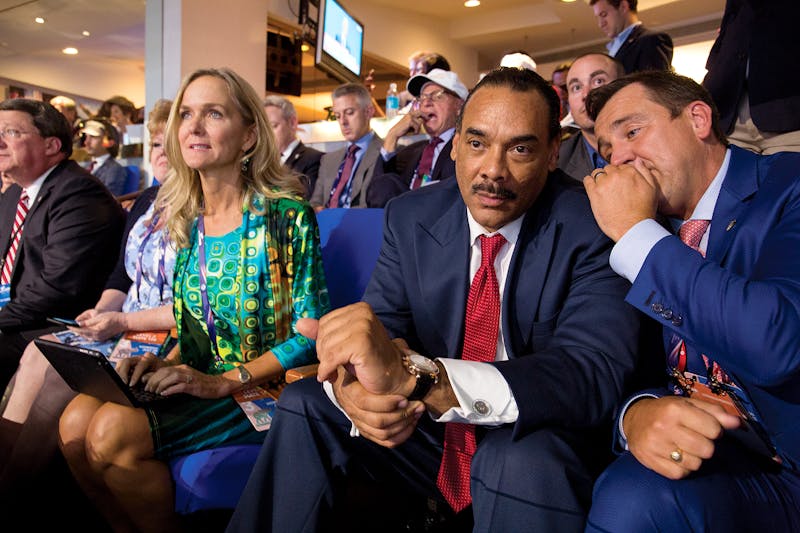
Bruce LeVell
Atlanta, Georgia
As executive director of the National Diversity Coalition for Trump, LeVell enjoyed Trump’s private convention box (above). He dismisses the idea that Trump is racist as “totally, 100 percent false,” but says many white Republicans struggle with diversity. “My illustrious lighter-skinned brothers and sisters,” he says, “are having a little growing pains, whether they admit it or not.”
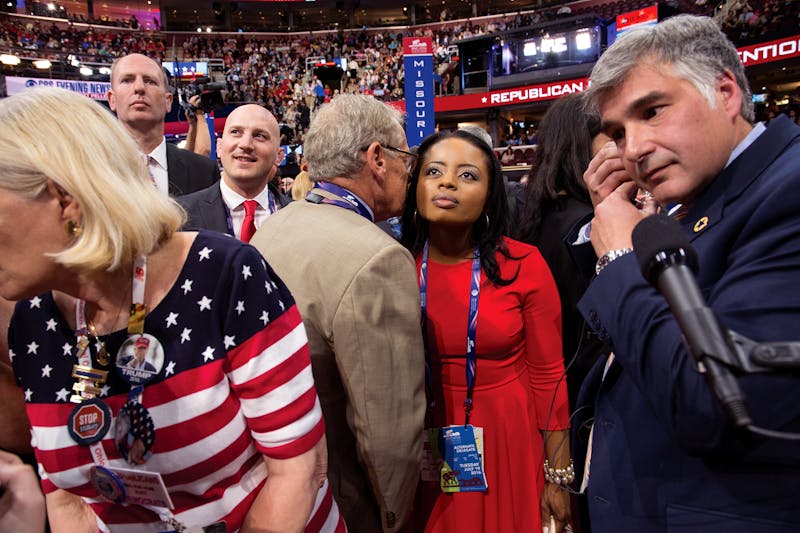
Parson Hicks
Boston, Massachusetts
Hicks, a finance executive for a health care company, says it doesn’t bother her that KKK leaders back Trump; as long as he denounces their support, she says, “it’s fine.” While she admits that his tone on illegal immigration is “not the most positive,” she backs his call to crack down on the border. “I’m not sure why everyone is not on the same page as him,” she says.
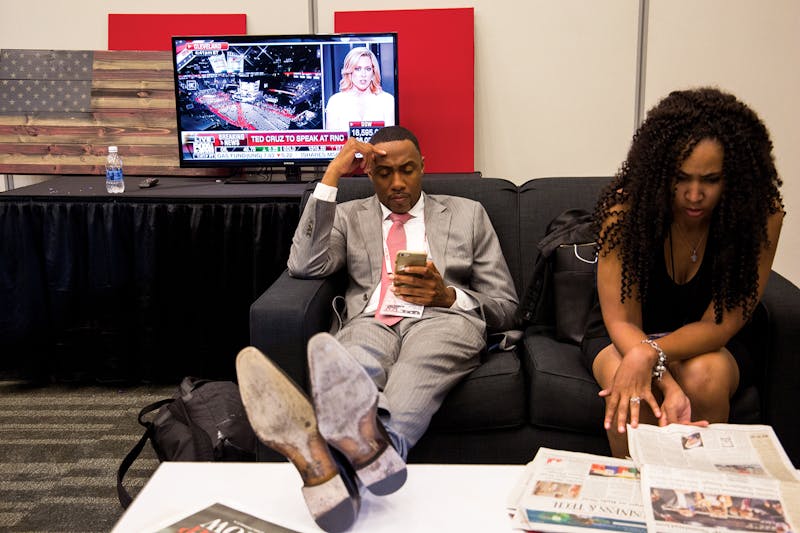
Ashley Bell
Gainesville, Georgia
The founder of a bipartisan group that advocates for racial justice, Bell spoke at the Democratic National Convention in 2004 before switching parties over Obamacare in 2010. “I wasn’t going to stay just because my only excuse was, ‘I don’t agree with this but I’m black, so I don’t have anywhere to go.’ ” This year, he backed Rand Paul and then Marco Rubio. He remains wary of Trump, who “has said things in the past that have made it very difficult for him to gain any traction in the African American community.” His goal is to have a voice in a Trump administration: “It’s my job to make sure he understands our issues.”
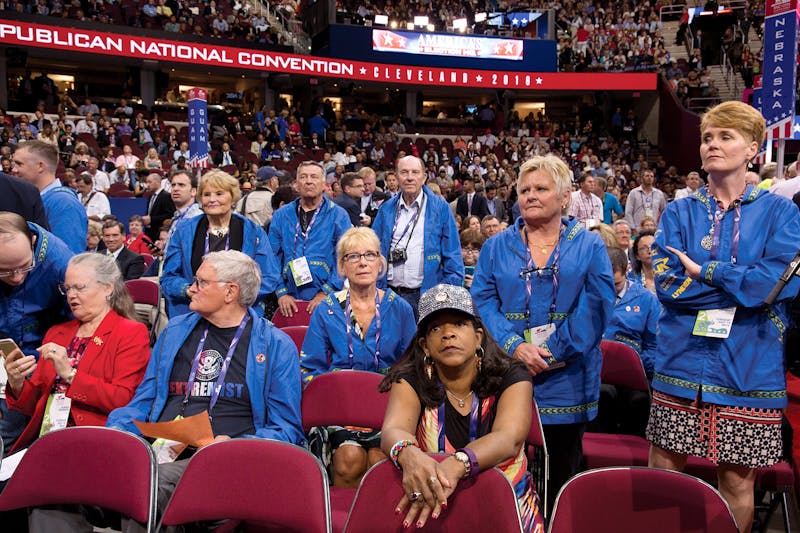
Sharon Jackson
Eagle River, Alaska
A constituent liaison for Senator Dan Sullivan, Jackson says she sees firsthand that citizens have “issues” with federal agencies. She joined the GOP in 1983, after enlisting in the Army. “I always felt that support,” she says, “that they had my back.” She knows Republicans are often accused of racism and misogyny, but “my experience has been the complete opposite.” She believes Trump has “the capacity for bringing people together.” Democrats, she says, have been “holding my people hostage,” taking black voters for granted. “Like Malcolm X said: A party tells you they’re gonna do something and they don’t do it—change parties.”
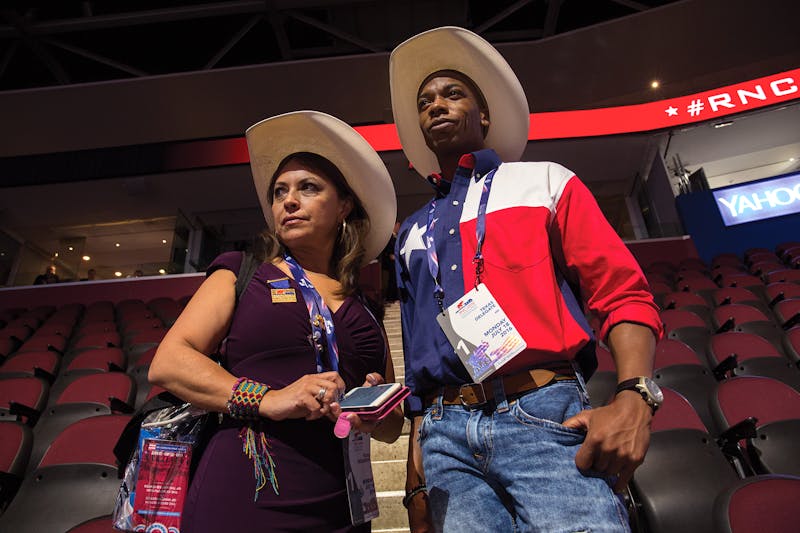
Henry Childs II
San Antonio, Texas
A family law and corporate attorney, Childs is a first-time delegate, second-generation Republican, and head of the Texas Federation of African American Republicans. He initially supported Ted Cruz, whom he calls a “good Texan,” but he switched to Trump because he considers himself “pro-winning.” His support for Trump, he says, flows directly from his pride as a black man. “I’m not a Republican because I’m ashamed of my race,” he says. “I’m a Republican because I love my people. The government has never been good to black people. So why would I vote for a party that basically says, ‘Let’s get more government’?”
